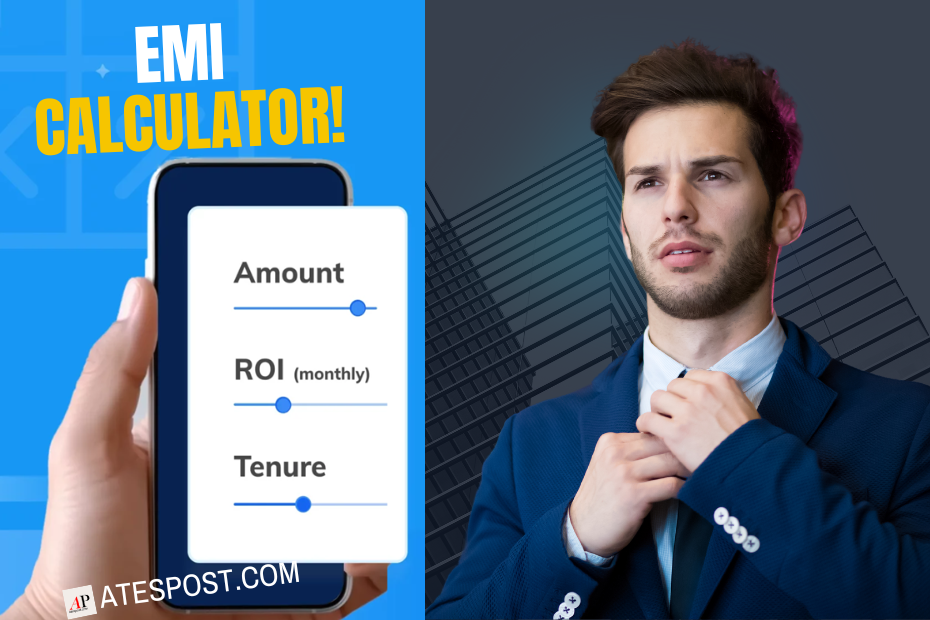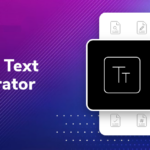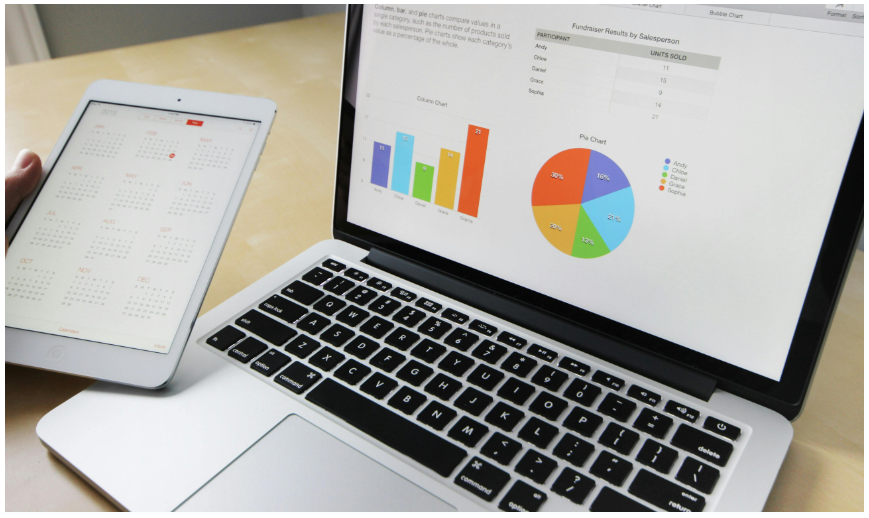EMI Calculator
What is EMI (Equated Monthly Installment)?
EMI, or Equated Monthly Installment, is a fixed amount you pay each month to repay a loan, like a home or car loan, over a set period. It includes both the principal amount (the borrowed money) and the interest charged by the lender. The EMI remains constant, making budgeting easier, though the interest and principal portions change over time—initially, more goes toward interest, and later, more reduces the principal. It’s calculated using the loan amount, interest rate, and tenure. Paying EMIs on time helps clear the debt steadily without financial strain.
Why you need to calculate EMI?
You calculate EMI to know how much you’ll pay each month for a loan, like for a house, car, or personal need. It helps you plan your budget, ensuring you can afford the payments without stress. By calculating EMI, you understand the total cost of the loan, including interest, and how long it’ll take to repay. It also lets you compare different loan options to pick one that fits your income and goals. Basically, it’s a way to make sure the loan works for you and you won’t struggle to pay it back.
Types of Loans to Know More!
Loans come in various types, each designed for specific purposes, with unique features, repayment terms, and eligibility criteria. Below is a detailed explanation of the most common types of loans, written in an easy-to-understand way:
1. Personal Loan
- What is it?
A personal loan is an unsecured loan you can use for almost anything—like medical emergencies, weddings, travel, or debt consolidation. “Unsecured” means you don’t need to pledge assets (like a house or car) as collateral. - Features:
- Fixed or floating interest rates (typically 10-24% per year).
- Loan amount: Usually ₹10,000 to ₹25 lakh, depending on your income and credit score.
- Tenure: 1 to 5 years.
- Quick approval, often within hours or days.
- Pros:
- No collateral required.
- Flexible usage for any purpose.
- Fast disbursal.
- Cons:
- Higher interest rates compared to secured loans.
- Requires good credit score for better terms.
- Best for: Short-term financial needs or emergencies.
2. Home Loan
- What is it?
A home loan is a secured loan used to buy or build a house or apartment. The property itself acts as collateral, meaning the lender can seize it if you fail to repay. - Features:
- Interest rates: 6.5-9% (fixed or floating).
- Loan amount: Up to 80-90% of the property value (₹10 lakh to crores).
- Tenure: 5 to 30 years.
- Tax benefits on principal and interest repayments (under Section 80C and 24(b) in India).
- Pros:
- Lower interest rates due to collateral.
- Long repayment period reduces EMI burden.
- Tax savings.
- Cons:
- Risk of losing property if you default.
- Lengthy approval process with extensive documentation.
- Best for: Buying, constructing, or renovating a home.
3. Car Loan
- What is it?
A car loan is a secured loan to purchase a vehicle (new or used). The car serves as collateral, which the lender can repossess if you miss payments. - Features:
- Interest rates: 7-12% (fixed or floating).
- Loan amount: Up to 80-100% of the car’s value (₹1 lakh to ₹50 lakh).
- Tenure: 1 to 7 years.
- Requires down payment (10-20% of car price).
- Pros:
- Affordable EMIs due to moderate tenure.
- Quick approval process.
- Fixed-rate options for predictable payments.
- Cons:
- Depreciation reduces car value over time.
- Defaulting risks losing the vehicle.
- Best for: Buying a new or used car.
4. Education Loan
- What is it?
An education loan helps fund higher education (in India or abroad), covering tuition fees, books, accommodation, and other expenses. - Features:
- Interest rates: 8-14%.
- Loan amount: ₹5 lakh to ₹1 crore, depending on the course and institution.
- Tenure: 5 to 15 years, often with a moratorium period (course duration + 6-12 months) where you don’t pay EMIs.
- Secured (collateral required for larger amounts) or unsecured (smaller amounts).
- Pros:
- Enables access to quality education.
- Tax benefits on interest paid (under Section 80E in India).
- Flexible repayment after studies.
- Cons:
- Interest accumulates during moratorium.
- Job uncertainty post-studies can make repayment tough.
- Best for: Students pursuing undergraduate, postgraduate, or professional courses.
5. Business Loan
- What is it?
A business loan provides funds to start, expand, or manage a business. It can be secured (with collateral) or unsecured, depending on the lender and loan size. - Features:
- Interest rates: 10-20% (varies widely).
- Loan amount: ₹50,000 to ₹50 crore, based on business size and creditworthiness.
- Tenure: 1 to 10 years.
- Requires business plan, financial statements, and credit history.
- Pros:
- Fuels business growth or working capital needs.
- Flexible options for startups and established firms.
- Some loans don’t require collateral.
- Cons:
- High interest for unsecured loans.
- Strict eligibility (revenue, credit score, etc.).
- Best for: Entrepreneurs, startups, or businesses needing funds for operations or expansion.
6. Gold Loan
- What is it?
A gold loan is a secured loan where you pledge gold jewelry or ornaments as collateral to borrow money. It’s a quick way to get cash. - Features:
- Interest rates: 7-15%.
- Loan amount: Based on gold’s market value (₹5,000 to ₹50 lakh).
- Tenure: 3 months to 3 years.
- Minimal documentation; gold’s purity is key.
- Pros:
- Fast disbursal (sometimes within hours).
- Lower interest rates than personal loans.
- No credit score needed.
- Cons:
- Risk of losing gold if you default.
- Short tenure can pressure repayment.
- Best for: Quick, short-term cash needs.
7. Loan Against Property (LAP)
- What is it?
A loan against property is a secured loan where you pledge property (residential or commercial) to borrow a large sum for personal or business use. - Features:
- Interest rates: 8-13%.
- Loan amount: 40-60% of property value (₹10 lakh to ₹10 crore).
- Tenure: 5 to 15 years.
- Requires property documents and valuation.
- Pros:
- High loan amounts at lower rates.
- Flexible usage (business, education, etc.).
- Longer repayment period.
- Cons:
- Risk of losing property on default.
- Lengthy approval process.
- Best for: Large funding needs with property as security.
8. Payday Loan
- What is it?
A payday loan is a small, short-term unsecured loan to cover urgent expenses until your next salary. It’s typically repaid within a month. - Features:
- Interest rates: Very high (20-50% per month or more).
- Loan amount: ₹1,000 to ₹50,000.
- Tenure: 15-60 days.
- Minimal eligibility (proof of income).
- Pros:
- Instant approval and disbursal.
- No collateral needed.
- Cons:
- Extremely high interest rates.
- Can lead to debt trap if not repaid on time.
- Best for: Temporary cash shortages (use cautiously).
9. Credit Card Loan
- What is it?
A credit card loan is a pre-approved loan offered by your credit card issuer, based on your card usage and credit limit. It’s essentially cash borrowed against your card. - Features:
- Interest rates: 12-18% (higher than personal loans).
- Loan amount: Depends on credit limit (₹10,000 to ₹5 lakh).
- Tenure: 6 months to 4 years.
- Repaid via EMIs or added to card balance.
- Pros:
- Easy access without extra documentation.
- No collateral required.
- Cons:
- High interest rates.
- Can reduce available credit limit.
- Best for: Urgent needs for credit cardholders.
10. Overdraft Facility
- What is it?
An overdraft is a credit facility linked to your bank account, allowing you to withdraw more money than you have, up to a limit. It’s not a traditional loan but acts like one. - Features:
- Interest rates: 10-20% (charged only on withdrawn amount).
- Loan amount: Based on account type or collateral (₹10,000 to crores).
- Tenure: Revolving credit, repaid flexibly.
- Common for salaried individuals or businesses.
- Pros:
- Pay interest only on used amount.
- Flexible withdrawals and repayments.
- Cons:
- High interest if overdrawn frequently.
- Requires good banking relationship.
- Best for: Short-term cash flow needs.
Key Points to Understand:
- Secured vs. Unsecured: Secured loans (home, car, gold) have collateral, so they offer lower rates but risk asset loss. Unsecured loans (personal, payday) don’t need collateral but charge higher interest.
- Interest Rates: Fixed rates stay constant; floating rates vary with market conditions.
- Eligibility: Depends on income, credit score, age, and documents. Secured loans may also need asset valuation.
- EMI Calculation: Most loans are repaid via EMIs, calculated using loan amount, interest rate, and tenure. Use an EMI calculator to plan payments.
Each loan type serves a unique purpose, so choose based on your needs, repayment capacity, and financial goals. Always read terms carefully to avoid surprises!











